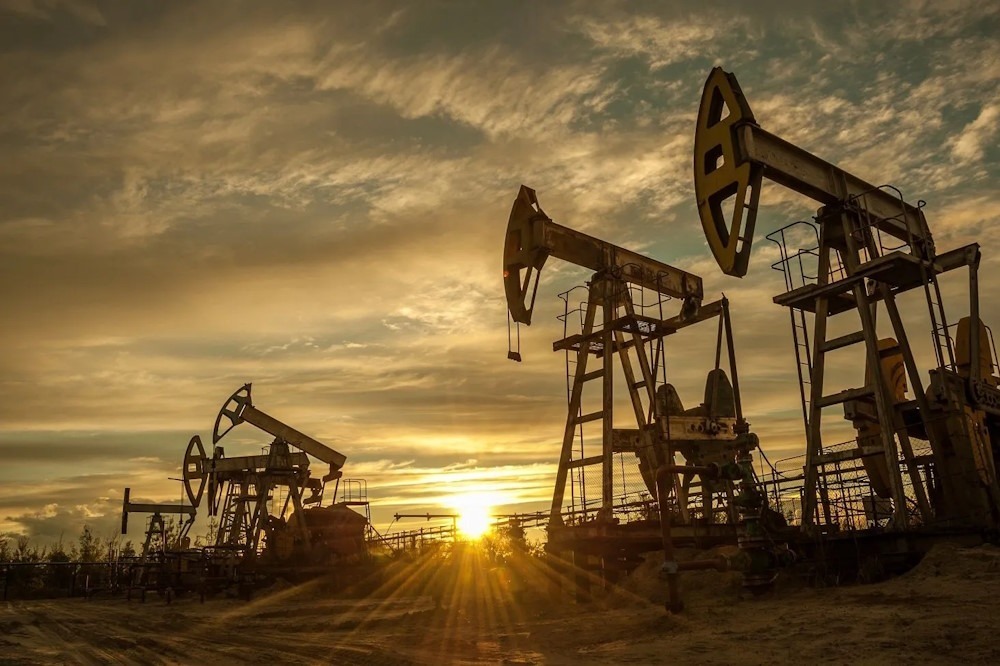Who favors the oil industry?

Is Trump a more favorable choice than Harris for oil and gas investors? Are you supporting the candidate who favors the oil industry or the one who opposes it?
Former President Donald Trump strongly supports the energy industry and advocates for increased drilling in the U.S., while Vice President Kamala Harris has expressed her opposition to fracking. However, determining which politician is truly more favorable to the industry can be quite challenging.
During the three-week period between President Biden’s debate performance and his departure from the race, there was a 3% decrease in crude-oil prices, while a basket of large U.S. oil-and-gas companies experienced a nearly 2% increase. Typically, they tend to move together, but the divergence is understandable: According to industry veteran Dan Pickering, chief investment officer of Pickering Energy Partners, Trump is seen as more supportive of the industry but poses a higher risk to commodity prices. On the other hand, Harris is viewed as riskier for the industry but more optimistic about price trends.
In general, the removal of obstacles to drilling and pipeline construction can contribute to sustained growth, but it may also have a negative impact on short-term commodity prices and industry profits. For instance, if the cost of doing business is reduced by relaxing environmental regulations, it could enable smaller, independent producers to participate in the drilling activities, which may impact the overall profitability of the industry. Similarly, policies that hinder the expansion of industries can have a positive impact on short-term prices and profits, even if the long-term effects are uncertain.
Let’s examine the industry’s performance during Biden’s presidency thus far, where he has discouraged fossil-fuel production and advocated for significant subsidies in green energy. During the first three years of Biden’s term, the 10 largest components of the S&P Oil & Gas Exploration & Production Index experienced a significant increase in their combined free cash flow. In fact, this increase was three times higher than what was observed during the entire four-year period under Trump. As a result, these companies now have more cash available to distribute to their shareholders. These increases were partially influenced by the rise in oil prices that occurred during Biden’s presidency, which was a result of Russia’s invasion of Ukraine.
However, maintaining strict control over capital was a significant factor. It is anticipated that the consortium of major producers will allocate a comparable total amount to capital expenditures throughout Biden’s entire term, even with the presence of elevated oil prices, as they did during Trump’s tenure. A less favorable environment for drilling may lead companies to prioritize returning cash to shareholders over making new investments.
In general, the industry could experience a variety of outcomes under a Trump presidency, ranging from highly favorable to potentially disastrous, depending on the extent to which he follows through on his campaign pledges. The industry would greatly benefit if Trump were able to gain congressional support to establish policies that promote long-term growth and investment in the oil and gas sector. According to Bob McNally, the President of consulting firm Rapidan Energy Group, potential actions could involve reducing the Energy Department’s involvement in permitting or granting export authority, as well as excluding greenhouse gases as a pollutant in the Clean Air Act.
However, if Trump’s antitrade policies are put into action, they could have an immediate negative impact on the sector. He has suggested implementing a 10% tariff on all imports, along with a 60% tariff specifically targeting imports from China. If implemented, the potential economic downturn could have a significant impact on energy consumption, especially for China, which is the largest oil importer.
According to McNally, the potential consequences of this would outweigh any potential benefits from regulatory easing, particularly for shale production. According to Gary Ross, chief executive of Black Gold Investors, Trump’s tariff proposals have a negative impact on the oil market.
Trump’s previous term demonstrated the energy industry’s exposure to unforeseeable outcomes. For instance, although his administration backed LNG exports, it also escalated trade tensions with China. Shipments to one of the world’s largest importers came to a halt for a year following China’s decision to impose a 25% tariff on U.S. LNG.
Meanwhile, his efforts to reduce oil prices in 2018, by requesting increased production from Saudi Arabia, resulted in an oversupply in the market and a significant decline in prices, negatively impacting producer profits. Initially, he proposed expanding oil-and-gas drilling in more offshore areas of the country. However, during his campaign for a second term, he implemented a ban on offshore drilling off the coasts of certain states, including Florida and Georgia, which frustrated the energy industry.
There might be a more limited range of potential outcomes with Harris. She has the potential to impose additional expenses and challenges on the fossil-fuel industry, all the while advocating for policies that support renewable energy. As a senator running in the 2020 Democratic primary, she suggested that the Justice Department should take action against oil-and-gas companies that have played a role in contributing to global warming.
In general, efforts to curb the industry face considerable constraints due to the growing influence of courts that are increasingly opposed to regulation, as analyzed by Rapidan. However, Harris has already reversed her stance on supporting a fracking ban. Several of Biden’s most significant energy executive orders have faced legal challenges, resulting in their temporary suspension. These include the halt on new drilling permits for federal land and offshore waters, as well as the suspension of LNG export permits.
Foreign policy is an area where presidents have the potential to make a significant impact.
Regardless of recent developments, Harris is expected to continue with the current situation, ensuring the continuous flow of oil from Iran and preventing Russian crude from reaching Western buyers. Trump’s potential actions may lead to varying impacts on oil prices. One possibility is that he could adopt a more stringent approach towards Iran and consider re-imposing sanctions, a move that could potentially drive prices higher. Alternatively, Trump may consider reducing sanctions on Russia, potentially resulting in a decrease in oil prices. Trump’s amicable ties with Saudi Arabia might lead to a more favorable response from OPEC+ regarding U.S. requests to adjust oil production as necessary.
Both the president who supports the oil industry and the president who supports environmental sustainability pose potential challenges for the oil and gas sector. Investors can find solace in the fact that drilling economics and the laws of supply and demand often have more influence than a U.S. president’s intentions. The rapid advancements in fracking technology played a significant role in driving the shale boom during the environmentally-conscious tenure of Obama. Conversely, the oil industry experienced some of its most challenging periods during Trump’s presidency due to the demand crash caused by the pandemic. During Biden’s tenure, companies achieved record industry profits, partly due to Russia’s invasion of Ukraine.
Whether it’s elections or the economy, it’s important to remember the fundamental principle: the economy is crucial.









